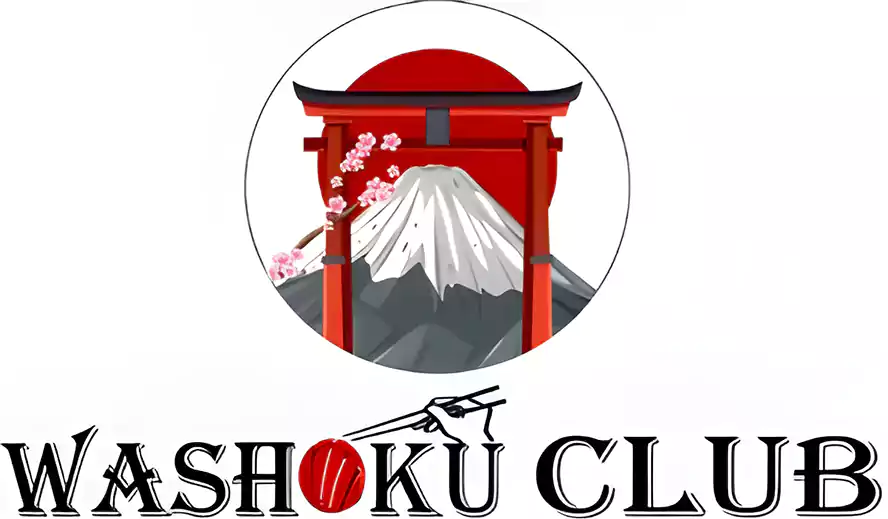Is Summer in Japan Too Hot? Here’s How to Enjoy It Like a Local in 2025
Planning a trip to Japan? Don’t miss out on Summer in Japan for a wonderful experience! With stunning fireworks and traditional matsuri, green pastures and seasonal cuisine, Summer in Japan has something to suit that’s culturally unique and naturally resplendent. Use this guide for all you need to know to make the best out of your summer escapade in Japan.

Summer in Japan
Summer in Japan officially starts after the rainy season, “Tsuyu” (梅雨), which usually ends somewhere in mid-July for most of Japan. Once Tsuyu departs, Japan welcomes an age of torrid heat and dampness that might be a little different from what you’re used to. Imagine walking around in air that’s just a teensy bit thick, with the scorching sun overhead. That’s the general vibe of a Summer in Japan!
The Japanese have particular ways of coping with the heat in summer. They’ll dress in light and loose-fitting clothing made of light materials like cotton and linen. They’ll also consume plenty of water and cold tea to keep moisture levels up. Small portable fans (“Uchiwa” – うちわ) and cool towels wrapped around the neck are essentials that help them feel a bit more comfortable.
What Months is Summer in Japan? A Traveler’s Essential Guide

Is Japan in July Too Hot for Your Dream Trip? Here’s What to Expect
It’s true that July in Japan is humid and hot, but these conditions will not pose an obstacle to your complete enjoyment of the magic of Summer in Japan with Washoku Club. Our great understanding of the weather during this period is what distinguishes our services and renders your travel with us comfortable and enjoyable.
Temperature: Daytime temperatures in all of the country’s major cities, like Tokyo, Kyoto, and Osaka, typically range from the high 20s to the low 30s degrees Celsius (approximately 80 to mid-90s Fahrenheit). It is hotter even than that due to the humidity.
Humidity: This is the real condition that may make July feel steamy. On high humidity days, even upper 20-degree temperatures will become very sticky and uncomfortable,
But these will not pose an obstacle to your complete enjoyment of the magic of Japanese summer with Washoku Club Culture and Food Tours. Our great understanding of the weather during this period is what distinguishes our services and renders your travel with us comfortable and enjoyable.
Our Smart Trip Planning: We begin our Food Tour with you from the moment you intend to book, and we offer consultations to determine the most suitable times and zones based on your interests and the July climate.
Comfortable and Enjoyable Itineraries: We design our Food Tour packages with utmost care to prevent exposure to intense heat during peak times, with a focus on indoor sightseeing and visiting places early in the morning or evening.
Comprehensive Care Throughout the Trip: Our professional team is always by your side to provide you with all the assistance. At Washoku Club Culture and Food Tours, our desire is that you may enjoy every sweet aspect of the Japanese summer, from the vibrant festivals to the awe-inspiring nature views, with no worry of hassle created by the weather. Let us handle everything, and enjoy every moment of your trip to Japan!

What is The Hottest Month in Japan? Unveiling Japan’s Peak Summer Heat
Best Time of The Year To Visit Japan 2025
Spring in Japan (March to May): The Season of Renewal
Highlights: It is the traditional cherry blossom (Sakura) time, an incredibly beautiful experience that greets individuals from around the world. The time of flowering varies with location, typically opening in the southern regions around late March and extending to the north in the month of April. Spring also offers breathtaking scenery with fresh foliage and flowers in bloom.
Summer in Japan (June to August): Festivals, Heat & Lush Landscapes
Weather: As we’ve said, Summer in Japan is characterized by the rainy season (Tsuyu) in June, followed by hot and humid weather in July and August. The temperature goes up to the low to mid-30s Celsius (80s-90s Fahrenheit), with high humidity making it feel even worse.
Autumn in Japan (September to November): A Tapestry of Colors
Weather: Autumn is generally considered to be one of the best times to visit Japan. It is not too hot nor too cold, the humidity is low, and the weather is generally clear.
Highlights: The stunning autumn leaves (Koyo), with bright red, orange, and yellow hues adorning the mountains and gardens, ranks as a number one attraction. Like viewing cherry blossoms, the most favorable observation time varies by location, starting in the northern regions in September and making its way south through November. Autumn also offers pleasant weather to explore cities and cultural sites.
Winter in Japan (December to February): Snow, Scenery & Serenity
Weather: Japanese winter is very region-specific. The Japanese Alps and northern Japan get plenty of snow and excellent skiing and snowboarding. Tokyo and Kyoto experience cold but generally sunny days with scattered light snow.
Highlights: Winter offers beautiful snowscapes, onsen (hot springs) are particularly irresistible, and the cities offer festive illuminations. It’s also less crowded to visit many of the more well-known tourist spots (except ski resorts).
Considerations: Take warm clothes, especially when traveling to the northern areas. Some mountain roads are obstructed by snow.
Summer in Japan 2025 Guide: Where to Go, What to Do – Your Ultimate Itinerary Ideas!
While heat is involved, the Summer in Japan 2025 is abounding with unique experiences and spots perfect for this active season. Take the following ideas to spark your travel plan:
For Escaping the Heat in Nature:
Hokkaido: As mentioned, Hokkaido is a refreshing retreat with pleasant weather. See the flower fields at Furano and Biei, hike in Daisetsuzan National Park, and take in the clean air.
Japanese Alps (Kamikochi, Tateyama Kurobe Alpine Route): Highlands that feature stunning views, hiking trails, and a chilly climate. Tateyama Kurobe Alpine Route, with snow walls in early summer and wonderful views, is something one would never forget.
Nikko: A natural and historical wonderland to the north of the capital, Nikko boasts its own beautiful temples, shrines, and cooler mountain weather, especially near Kegon Falls and Lake Chuzenji.
For Beach Fun & Island Vibes:
Okinawa: Enjoy the tropical beaches, crystal-clear waters, and vibrant marine life of Okinawa. Summer in Japan is the prime season for swimming, snorkeling, and diving.
Setouchi Islands (Naoshima, Teshima): Explore the unique art installations and stunning coastal scenery of the Setouchi Islands. Summer offers beautiful weather for island hopping.
For Unique Summer Experiences:
Mount Fuji Climbing (July–Mid-September): The Climatic season to ascend Mount Fuji is summer. Watching the sunrise at the summit is an experience one will never forget (requires proper planning and gear).
Summer Fireworks Festivals (Nationwide in July & August): Witnessing a Hanabi (fireworks) festival is an archetypal Japanese summer experience, with numerous cities and towns hosting a dazzling display.
Relishing Kakigori (Shaved Ice): Beat the heat with this famous summer dessert, which comes in hundreds of flavors.

Famous Japanese Summer Festivals
Kyoto (July): Be mesmerized by the grandeur of the Gion Matsuri, one of Japan’s most renowned festivals, featuring extravagant floats and traditional processions. The atmosphere is electric! And while you’re in Kyoto, elevate your experience by joining our Flavors of Pontocho: A Private Half Day Food Tour By a Kyoto Expert Discover the hidden flavors of Kyoto’s historic streets, perfectly blending with the festive vibe.
Osaka (July): Be mesmerized by the lively Tenjin Matsuri, featuring a spectacular boat procession along the Okawa River and a stunning fireworks show.
Aomori (August): Witness the vibrant and dynamic Nebuta Matsuri, with massive lighted floats marching through the streets. It’s an actual once-in-a-lifetime experience.
Akita (August): Be captivated by the elegant Kanto Matsuri, where sportsmen balance long poles with lanterns.

How Unbearable is Japan in the Summer? A Realistic Look for Travelers
Summer in Japan is a sensory experience! Imagine wading into air thick with promise, where passion burns from the sun and humidity clings to you like a lover’s hug. Will you wilt? Maybe for a nanosecond! But will you also experience another Japan bursting with raw life and unutterable memories? You bet!
Imagine it like this: Summer in Japan is like accessing a secret level of the nation. It is difficult, perhaps, but one that is fraught with amazing benefits:
Explosions of Culture: That’s when Japan comes alive with Matsuri! Imagine rainbow parades, the boisterous pounding of taiko drums echoing in the scorching heat, and the electric thrill of a thousand or so basking in centuries of tradition. Not only is it hot; it’s hot with cultural fervor!
Japanese Summer Food
One of the greatest things about Summer in Japan is the great seasonal cuisine that cools people down and makes them enjoy the heat. From cold desserts to light and refreshing dishes, Japanese summer cuisine is made to suit the hot and humid climate.
One of the summer desserts of preference in Japan is Kakigori, a light ice-shaved dessert sprinkled with bright syrups, fruits, and sometimes sweet beans or condensed milk. It’s simply the way to get past the heat and enjoy an old favorite summer treat. Somen is another favorite summer treat that is a thin white noodle served cold with a bland dipping sauce. It’s light, refreshing, and one of the best foods to enjoy in Japan during the summer.
And if you’re in Tokyo with your family this summer, there’s no better way to experience these flavors than joining our Family Tour In Tokyo: A Half Day Of Food, Anime & Sweets With Guide. You’ll get to taste traditional summer treats like Kakigori and Suika while exploring Tokyo’s most fun and family-friendly anime and sweets spots, making your Summer in Japan truly unforgettable.
You will also spot individuals consuming Suika, or Japanese watermelon, particularly at picnics and celebrations. It is sweet, juicy, and used frequently in an entertaining summer activity known as Suikawari, where participants attempt to break a watermelon blindfolded.
Through its food, Summer in Japan becomes a season of flavors, light, cold, and unforgettable.

Summer Activities and Traditions
There is something magical in the way the Japanese enjoy summer. It is a season of uncomplicated delights, beautiful traditions, and outdoor adventures that render even the hottest days unforgettable.
One of the most charming sights during Summer in Japan is people wearing Yukata, a light cotton kimono perfect for the season. You’ll see families, friends, and couples dressed in colorful patterns, strolling through festivals and fireworks displays, adding a nostalgic beauty to the warm evenings.
Another popular summer activity in Japan is the Bon Odori dance. Held during the Obon vacation in August, this classic dance brings communities together in open grounds, where citizens spin around in a circle to the beat of taiko drums and folk music, a beautiful tradition that keeps the essence of vintage Japan alive.
And if you’d love to dive deeper into the heart of these traditions while tasting the best seasonal flavors, Tokyo Your Way: A Tailored Full Day Friendly Food Tour With Guide offers a perfect experience. This customized tour lets you explore Tokyo’s lively streets, summer festivities, and culinary treasures from street snacks to traditional sweets — all while guided by a friendly local expert.
And of course, Summer in Japan would not be complete without a trip to the beach or mountains. Some go to cool rivers, peaceful hiking trails, or sandy coasts to escape the heat of the city and appreciate nature’s grandeur.
Every little tradition and activity makes Summer in Japan a season full of warmth, color, and unforgettable moments.

Summer in Japan with Kids
Spending summer in Japan with kids is a euphoric season full of anticipation, discovery, and unforgettable family memories. There are just too many things the entire family does during summer that it is the perfect period for the children to play, discover, and luxuriate in nature.



